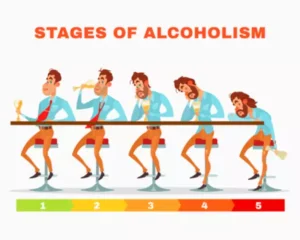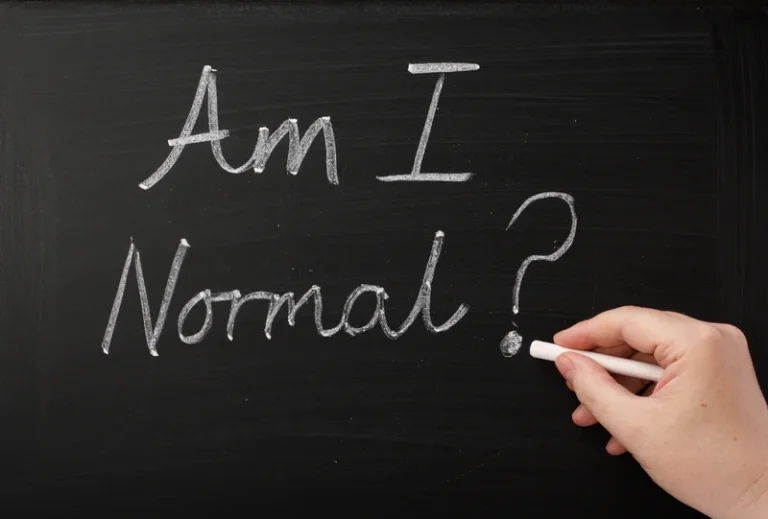
Working with a healthcare professional if these strategies don’t work is highly advised. Our physical and mental wellbeing, work environment, and the demands of our job all impact our degree of stress. They also influence our performance and productivity in the workplace.
What Is Work Stress?
Once you’ve identified your stressors, it’s time to develop strategies to manage them effectively within the workplace. This is crucial for how to not bring https://ecosoberhouse.com/ work stress home and maintain a healthy work-life balance. Meditation brings short-term stress relief as well as lasting stress management benefits.
- It can manifest in various ways, from constant worry about deadlines to conflicts with colleagues or feeling overwhelmed by responsibilities.
- Break large projects into smaller, manageable steps to avoid feeling overwhelmed.
- Making some changes to your daily habits could be instrumental in helping you feel better.
- Talkspace articles are written by experienced mental health-wellness contributors; they are grounded in scientific research and evidence-based practices.
- WSM aims to understand specific stressors and take positive steps to reduce their effects (Tetrick & Winslow, 2015).
Read a book

During your workday, that might look like walking to work, eating lunch outdoors, or spending time at the park after work. Research from 2017 found that exercise can affect the parts of the brain responsible for regulating your mood and coping with stress. Give yourself space to recharge by turning off notifications and not thinking about work while on vacation. If you work from home, Dr. Lassen suggests closing your office door and shutting your laptop to signal to yourself and others that you’re done working for the day. Dr. Lassen recommends keeping a “toolbox” to use in moments of stress that can include words of self-affirmation, calming or joyful pictures and a journal to help write away any negative thoughts. Do your best to use commute time as a « transition time, » during which you reset and refocus.
Long-Term Strategies for Maintaining Work-Life Balance
This certainly does the trick for me—before I can get into a TV show or book after my workday, I need to lie down and decompress (i.e. not talk to anyone) for 20 minutes or so. I have a much easier time shifting gears when I’m able to shut myself off from the world for how to destress after work a bit. Listening to music is also a known strategy for stress relief, and a simple one to do while sitting in an enclosed space. Mentally counting everything you have to be grateful for can not only make the time pass but can get you into a more positive frame of mind.

The impact of work stress extends far beyond the office walls, seeping into our personal lives and affecting our health, relationships, and overall well-being. This means creating enough balance in your life to include leisure time and hobbies. It means cultivating healthy relationships to help you feel fulfilled and take your mind off of stress. It means creating healthy habits to relieve stress, as well as setting goals that excite you and going for them. Or sometimes it can simply mean enjoying the present moment, whatever you happen to be doing at that moment. Enlisting support can also entail having someone to gently remind you to refocus your thoughts and energy if you start getting bogged down by stressful thoughts of work.
- Keeping a journal to track your stress triggers and reactions may help.
- Working with a mental health professional may help you better identify the sources of your work stress and find ways to navigate them.
- Being able to disconnect or “switch off” from responsibilities and job-related activities can help you relax and unwind like no other.
Honing your time management skills can allow you to minimize the stressors that you experience, and better manage the ones you can’t avoid. Physical activity is key to managing stress and improving mental health. And the best news is, there are many different kinds of activities that can reduce your stress. Exercise is a fantastic stress reliever that can work in minutes. Taking a walk allows you to enjoy a change of scenery, which can get you into a different frame of mind, and brings the benefits of exercise as well. A number of helpful techniques, such as deep breathing and meditation, are fast-acting tools that you can do anywhere, anytime.
Talkspace mental health services

While it’s not possible to eliminate all stress from your life, you can learn to cope with it and manage your reactions to stressful situations. Share your experiences with your colleagues—they probably have experienced similar struggles—and see if you can work towards solutions together, such as with scheduling conflicts or mandatory overtime. Bringing family and friends into the conversation can also help you feel less isolated and open doors to additional mental health resources.
- A number of helpful techniques, such as deep breathing and meditation, are fast-acting tools that you can do anywhere, anytime.
- Practicing self-care and personal time management is equally important at home as it is at work.
Managing your time
Multitasking was once heralded as a fantastic way to maximize one’s time and get more done in a day. However, people eventually began to realize that if they had a phone to their ear and were making calculations at the same time, their speed and accuracy (not to mention sanity) often suffered. Even small things like office noise can be distracting and cause feelings of low-grade frustration.
- Whatever the cause, job burnout can affect your physical and mental health.
- 💙 Ease into the late afternoon and early evening by pressing play on Calm’s curated playlist for relaxation, Mellow Afternoon Ambient.
- The problem is that this can magnify stress levels so that they are even higher after the commute home than they were at the end of the workday.
- Research has confirmed the success of mindfulness at reducing perceived stress and emotional exhaustion, and improving sleep quality and job satisfaction (Tetrick & Winslow, 2015).
- How we experience and handle stress changes its cognitive, emotional, and behavioral impact (Crum & Crum, 2018).
- At Pragmatic Thinking we acknowledge First Nations people both here in Australia and around the world.
Writing down your stressors

You can include people, places, and events that cause you a physical, mental, or emotional response. Sometimes, it’s easy to underestimate how much stress affects you. If you start becoming aware of how you feel, you may find yourself emotionally exhausted and pessimistic by the end of some days. Working on your time management skills, taking time to recharge, becoming aware of how events affect you, and relying on a support network may help you manage job-related stress. Learning to communicate effectively at work may help you reduce stressful situations if your culture allows it. Dealing with stress at work may be easier if you anticipate it, particularly if your work environment isn’t supportive.





























